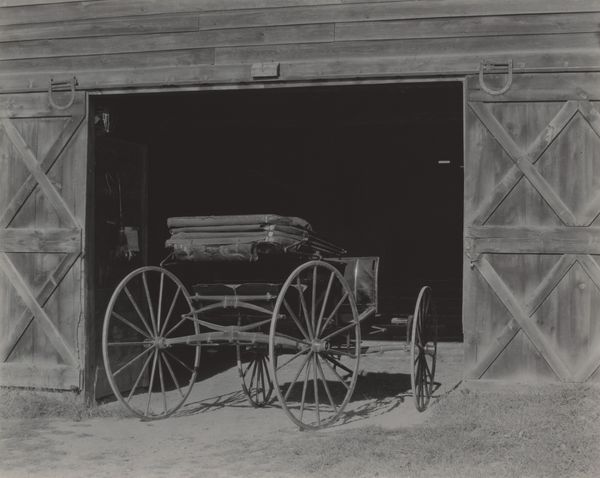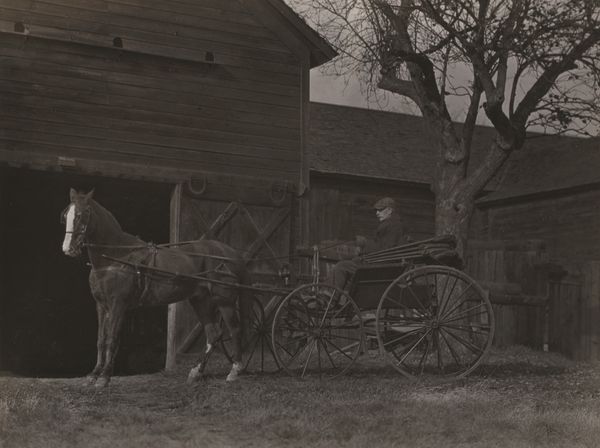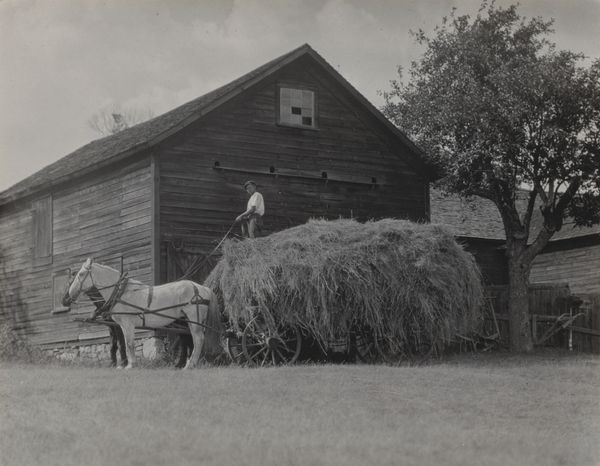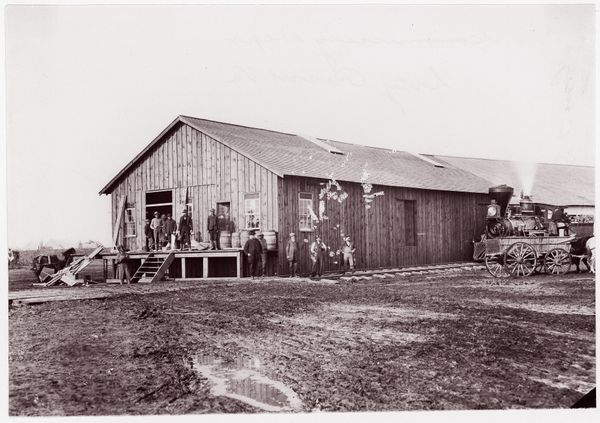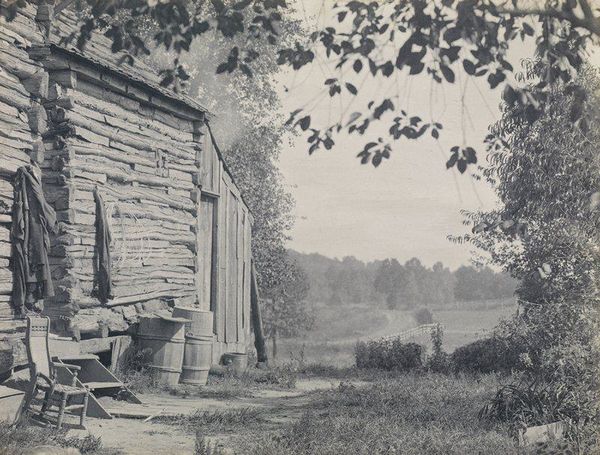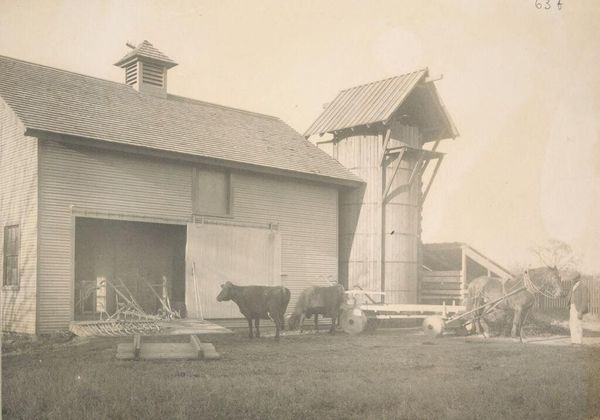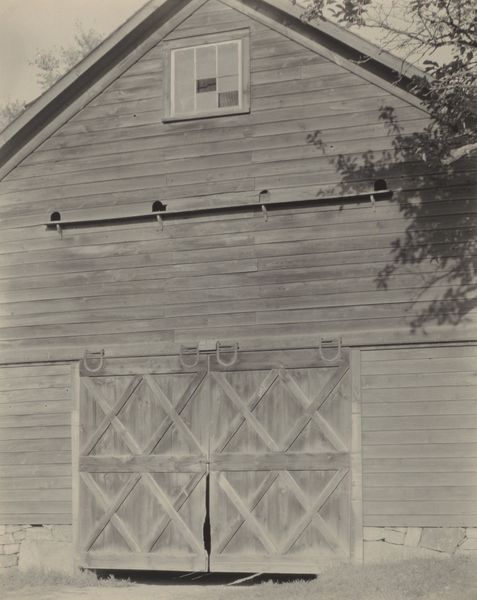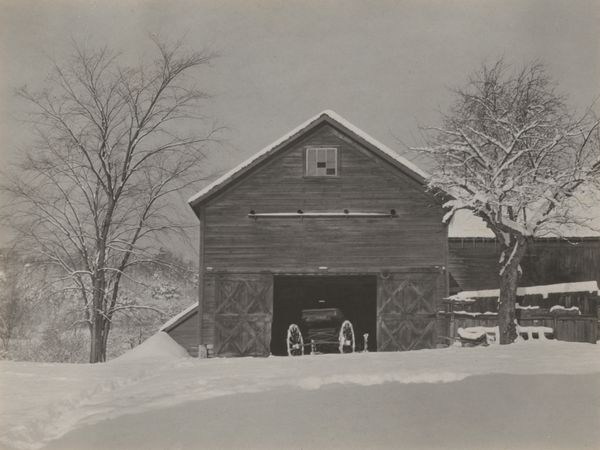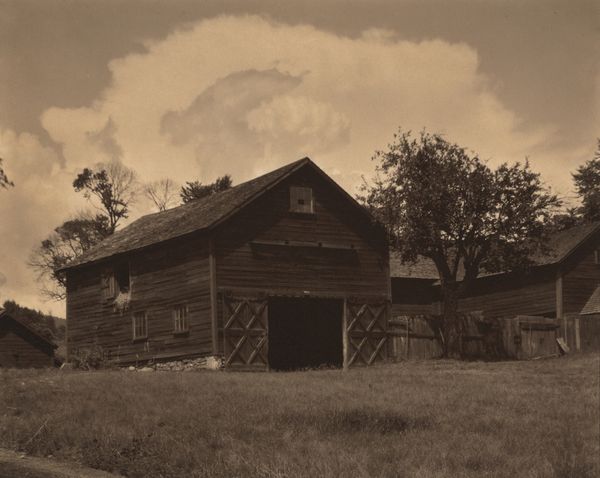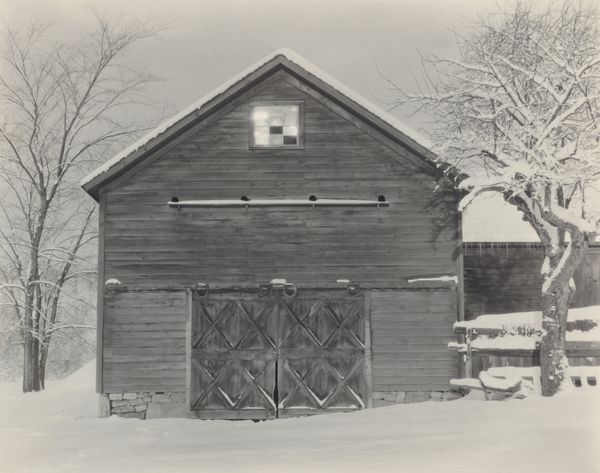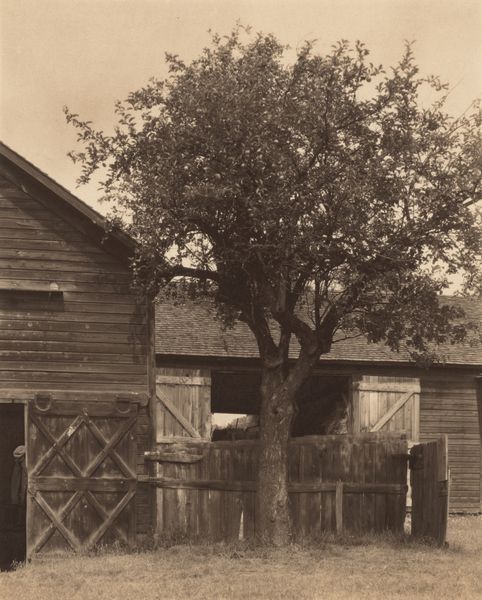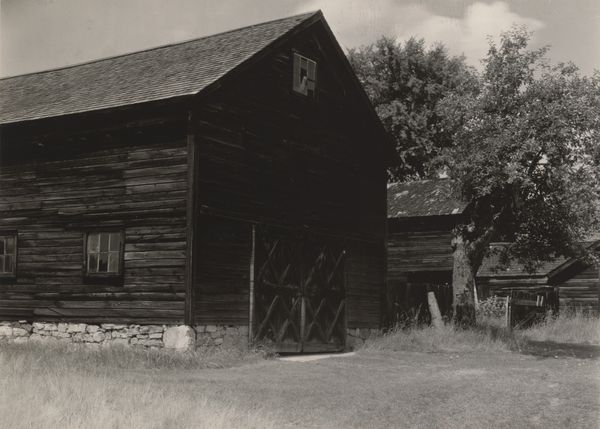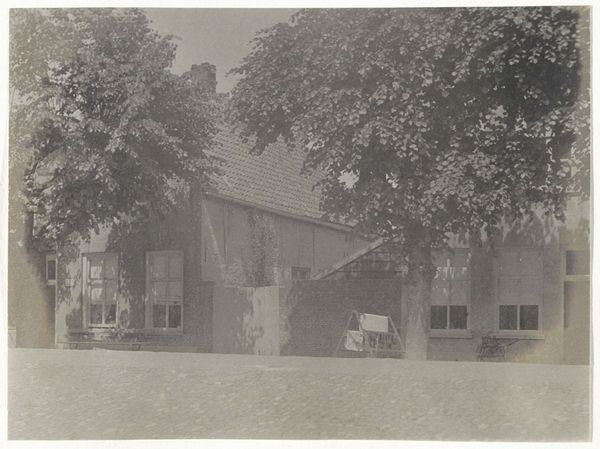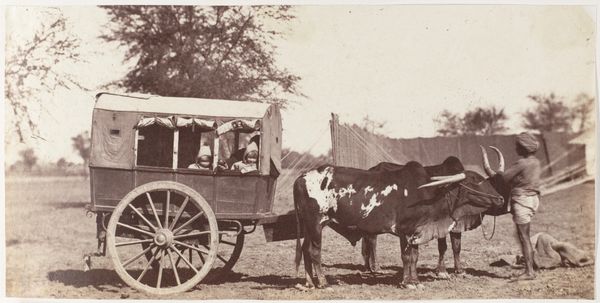
photography, gelatin-silver-print
#
portrait
#
black and white photography
#
pictorialism
#
landscape
#
black and white format
#
photography
#
old-timey
#
black and white
#
gelatin-silver-print
#
monochrome photography
#
ashcan-school
#
monochrome
#
modernism
#
realism
#
monochrome
Dimensions: sheet (trimmed to image): 8.9 × 10.7 cm (3 1/2 × 4 3/16 in.) mount: 34.2 × 27.6 cm (13 7/16 × 10 7/8 in.)
Copyright: National Gallery of Art: CC0 1.0
Alfred Stieglitz made this photograph of a “Horse and Carriage” sometime in the early 20th century, a period marked by rapid industrialization and social change in the United States. Stieglitz, a key figure in the Photo-Secession movement, advocated for photography as a fine art. This image reflects his interest in capturing everyday scenes with an artistic eye. Here we see a barn that is as much the subject as is the horse and carriage. The driver sits in the shadows, almost as if the carriage and horse are ready but waiting. The quietness of the composition evokes a sense of nostalgia, perhaps for a rural past that was quickly disappearing. But who had access to this rural past? Stieglitz’s images often romanticized rural life, but they also obscured the socio-economic realities of the time, including issues of race and class that shaped rural communities. Ultimately, this photograph invites us to consider the complex relationship between progress, memory, and representation in a changing world.
Comments
No comments
Be the first to comment and join the conversation on the ultimate creative platform.
